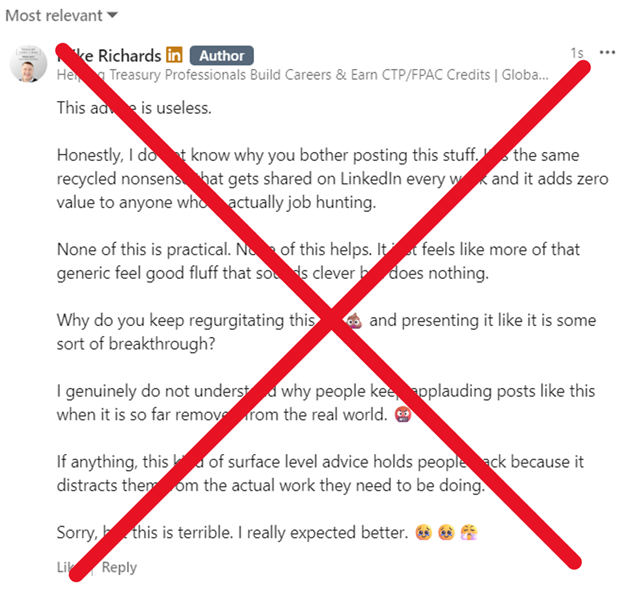How can treasury professionals stand out to recruiters? What career opportunities are there for treasury professionals outside of standard nine-to-five roles? And how can treasury advocate for its value?
Mike Richards, CEO and Founder of The Treasury Recruitment Company, answers questions that treasury professionals submitted on these topics during the AFP webinar, Achieving Career Success Through Effective Networking and a Strong Personal Brand.
This article is part of a four-part series, How to Achieve Career Success Through Networking and Personal Branding.
What are the top qualities that recruiters and employers focus on when recruiting talent at a global level?
Mike: The first thing I would say is it depends on who your audience is. Some may see treasury as cash management, while others may see treasury as their cash leader and risk manager on a global basis.
That being said, there are some areas of commonality. When it comes to expertise and technical skill, it’s proficiency in areas such as treasury, operations, risk management, cash management, finance, financial analysis and other technical skills.
Alongside your proficiencies, people will be looking at your qualifications. Do you have professional accountancy/finance qualifications? Do you have qualifications in treasury?
Another quality recruiters look for in treasury is a global mindset. Treasury, by nature, is global and needs to consider the international markets. You can’t afford to only focus domestically. You need to be able to navigate the international market currencies and all the cultural differences that this involves. You need to be able to work in diverse environments.
Additionally, recruiters look for business acumen. In other words, the ability to think strategically to align treasury objectives with corporate and work closely with the CFO to contribute to the whole. The people that I’ve spoken to who are the most successful at treasury are 100 percent integrated with the business. And if they’re not, they’re pushing toward that.
Can you talk about opportunities and career paths for the more ‘seasoned’ treasury professionals who are continuing their careers into what would have been considered their retirement years?
Mike: There are things that you can uniquely bring as a seasoned treasury professional. Beyond a standard nine-to-five role, you could consider consulting, perhaps interim assignments. Companies going through transition periods may be looking for someone with many years of expertise, and at the same time, you could enjoy some flexibility in your working style.
You could also consider mentoring and coaching or volunteering on a Board. These would give you an opportunity to share your knowledge as a seasoned treasury professional.
What is the best way to leave the corporate side and get into the treasury consulting field?
Mike: To start, identify your niche. Is your strength in cash management, risk or technology? Your niche is what is going to appeal to someone, and if you decide to work for a big firm, they will want to know what specialist skills you bring to the table.
You then need to network. Also, gain some experience. You could try and see if you’re able to do some consulting internally, then springboard it externally. Doing a project could also help in that sense. Consider getting a qualification that will help you develop your consulting skills.
Finally, build your personal brand and market yourself. Develop your LinkedIn profile to highlight your treasury experience. This will enable you to more easily make the move into a consulting position.
I feel that treasury is not recognized as an independent sub-unit within my company. How can I advocate for the value of treasury?
Mike: Present the value of treasury to different parts of the organization. Educate stakeholders, the CFO and other senior decision-makers.
For example, one of my clients produces a one-page weekly overview of where treasury is at that day, future prospects and key future talking points. After he started doing this, treasury started getting time with the senior management team. It was the first thing discussed in the meeting every Monday morning because they wanted to know what they were going to do and how it was going to enhance the financial strategy of the company. The credibility of treasury soared within the organization.
Additionally, collaborate, work with other teams, proactively engage and spread the word about treasury. If you do this, more people will want to be involved with treasury.
Get more career advice from this series, How to Achieve Career Success Through Networking and Personal Branding:
- Advice from a Treasury Recruiter on Finding a Mentor
- Advice from a Treasury Recruiter on Building a Personal Brand
- Advice from a Treasury Recruiter on Networking
Get more advice from Mike Richards on LinkedIn.



